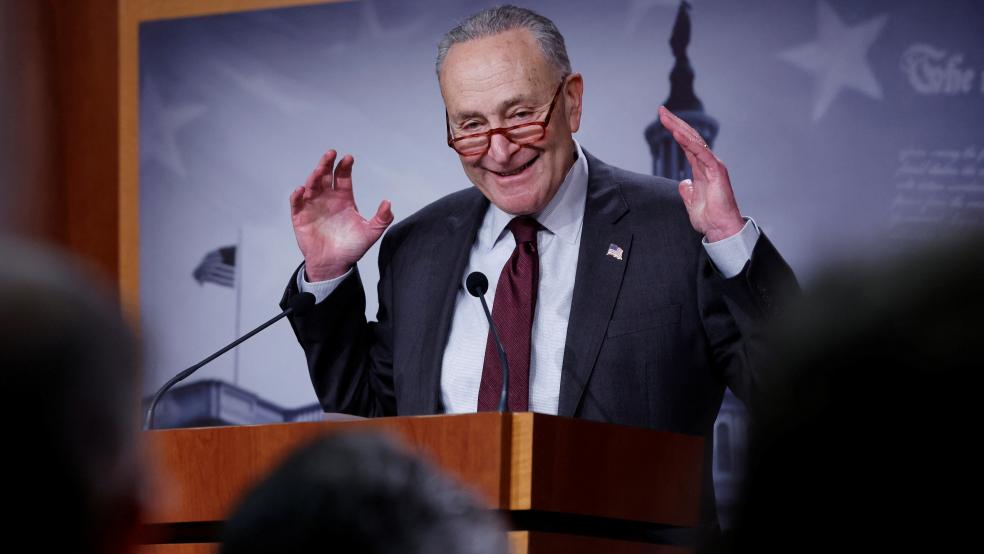The path to raising the debt limit is taking a few late twists and turns. After the House on Wednesday night easily cleared the bill negotiated by House Speaker Kevin McCarthy and President Joe Biden to raise the debt limit and cap spending, Senate leaders are working to speed the deal to a final vote. But while the legislation is all but certain to pass, the timing of a Senate vote remains unclear as negotiations continue to ensure all 100 senators agree to expedite the process.
“The Senate will stay in session until we send a bill avoiding default to President Biden’s desk. We will keep working until the job is done,” Senate Majority Leader Chuck Schumer of New York said Thursday on the Senate floor. “Time is a luxury the Senate does not have if we want to prevent a default. June 5 is less than four days away.”
For the Senate to be able to fast-track the bill and pass it before Monday’s deadline, all senators must agree — and they can’t amend the bill because that would send it back to the House for another vote with too little time before the deadline. “At this point, any needless delay or any last-minute holdups would be an unnecessary and even dangerous risk, and any change to this bill that forces us to send it back to the House would be entirely unacceptable. It would almost guarantee default,” Schumer said.
The holdup: Senators from both parties have raised concerns about the deal.
Defense hawks including Republican Sens. Lindsey Graham of South Carolina and Dan Sullivan of Alaska are looking to boost national security spending, which is set at $886 billion for fiscal year 2024, the level Biden requested, under the deal. Graham reportedly is seeking a separate supplemental aid package for Ukraine later this year. And GOP appropriators reportedly are asking for a promise from Schumer to bring up the 12 annual appropriations bills.
Republican Sen. Mike Lee of Utah has offered an amendment that would strike the House bill provision allowing the director of the Office of Management and Budget to unilaterally waive the requirement to find offsets for any administration policy action that increases direct spending by more than $100 million a year. Republican Rand Paul of Kentucky wants bigger spending cuts. And Virginia Democrat Tim Kaine is pushing to strip out a measure in the House bill that expedites the approval of permits for the Mountain Valley Pipeline, a controversial natural gas project that stretches from West Virginia to North Carolina and had been held up by legal challenges.
Sen. John Thune of South Dakota, the Republican whip, told reporters he expects about six to 10 amendments to be taken up.
What the House vote means: The House easily cleared the bill Wednesday night in a bipartisan 314-117 vote that saw 165 Democrats and 149 Republicans back the deal. The overwhelming vote total represents a win for McCarthy, who got the support of more than two-thirds of Republicans, more than meeting the requirement that a majority of the majority back his deal.
Still, McCarthy will face criticism from conservatives upset that his compromise fell short of the full GOP wish list and galled that the bill got more votes from Democrats than Republicans. Conservatives will be discussing a move to oust McCarthy in the coming days. And Rep. Chip Roy of Texas, a leading hardliner, said he plans to sit down with McCarthy next week to air his grievances, according to CNN.
The bottom line: It’s not done quite yet — but it could be very soon.




